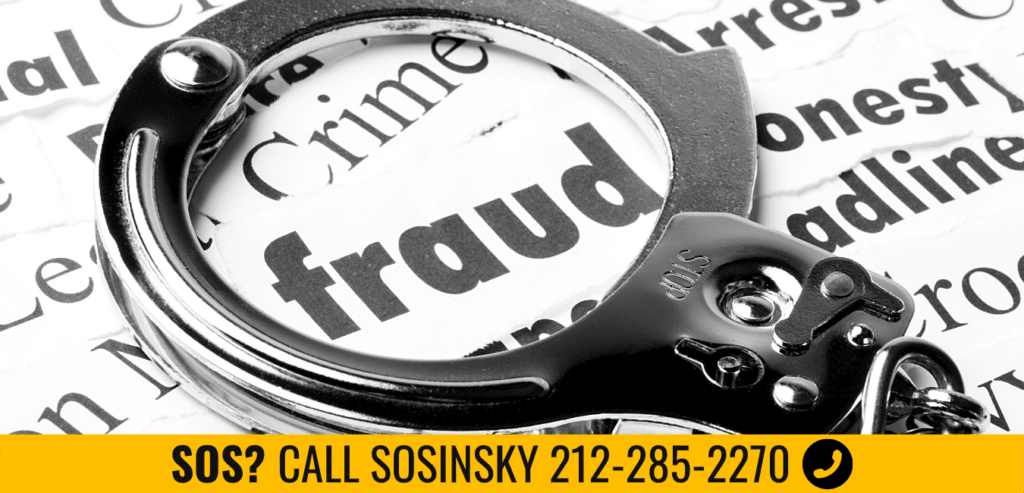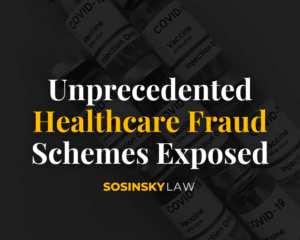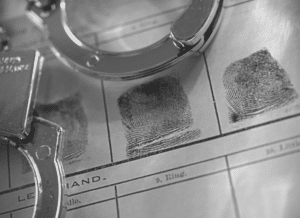NYC Healthcare Fraud Lawyer
Healthcare Fraud Lawyer in New York City
Twenty-five years ago, in response to growing concerns about widespread fraud in the medical, hospital, and health insurance industries, Congress for the first time passed a stand-alone statute criminalizing fraud in the healthcare field. The federal healthcare statute is modeled upon the wire and mail fraud provisions of the United States Code and, much like those statutes, it has an extremely broad reach. Simply stated, federal healthcare fraud takes place whenever one knowingly and willfully engages in a plan or scheme to defraud any healthcare benefit program or insurance company, including the Medicare, Medicaid, and Tricare programs, or to obtain by false or fraudulent pretenses or promises money from such a healthcare benefit program in connection with the provision of or payment for healthcare benefits.
Investigations of criminal allegations of fraud in the healthcare field may be conducted by a number of federal law enforcement agencies including the FBI, the Office of Inspector General of the U.S. Department of Health and Human Services, the Food and Drug Administration, and others in partnership with state Medicaid fraud control units. Often enough, criminal probes may begin as routine civil audits or investigations and may be the result of the tip by an insurance carrier of suspected misconduct. Convictions for healthcare fraud are serious matters indeed — they are generally punishable by up to a decade in prison along with heavy fines, restitution and forfeiture as well. Of course, a conviction for healthcare fraud can also ruin your reputation and career.
If you have received a subpoena for medical or billing records, a visit or call from a federal fraud investigator, or if matters have progressed to charges being brought against you for health care fraud, you need to ensure that you are properly represented by a skilled criminal practitioner, one who has a keen understanding of the industry as a whole and of the aggressive methods used by investigators and prosecutors to uncover and prove allegations of fraud in the healthcare field in particular. NYC healthcare fraud lawyer Fred Sosinsky has represented physicians, nurses, and other providers in criminal probes and prosecutions for more than 30 years. He has also represented non-provider entities such as clinic owners involved in the healthcare businesses and embroiled in federal criminal investigations. The earlier in a healthcare fraud investigation that Fred is involved, the more likely it is that he may be able to positively affect and even put an end to the criminal probe Fred knows that, particularly for these clients, what is most important is that they are able to continue providing services to the community and doing good for their patients. Fred will do everything possible to put a healthcare fraud investigation behind you.

What is Healthcare Fraud?
A person may be charged with federal healthcare fraud when he or she knowingly executes or attempts to execute a scheme to defraud any healthcare benefit program or to falsely or fraudulently obtain a benefit from a healthcare program by deliberately making material false statements to such program in connection with the delivery of healthcare benefits, items, services, or payment or reimbursement for them.
A charge of a conspiracy to commit healthcare fraud will almost always accompany the substantive crime of healthcare fraud. To prove a healthcare fraud conspiracy charge, the government needs only to establish an agreement between at least two people to knowingly commit the crime of healthcare fraud and a step or act taken to further that plan. It is not required that a successful fraudulent claim is processed or paid. Rather, it is the illicit agreement itself that constitutes the conspiracy crime that may be punished exactly the same as the substantive offense.
Conduct which may form the basis for a federal criminal healthcare fraud investigation or prosecution typically includes one or more of the following practices by a healthcare provider: billing a program or carrier for medical services, testing or durable medical equipment that were not rendered or provided at all to an identified patient; billing for more treatment hours or visits from a patient than actually took place; billing for medically unnecessary services or procedures; this type of allegation is frequently seen in the cosmetic surgery field where unless claimed to be necessary, programs and carriers will not pay for such procedures; billing more than once for single medical services, testing or goods; so-called “upcoding” of medical services or equipment claims whereby a more expensive service or medical good is claimed to have been provided even though a lesser service or good was in fact provided; often this is accompanied by a modification in diagnosis so that the higher paying claim may appear to be justified; so called “unbundling” of single procedures into multiple stages so that billing may take place for each stage as if the procedure or service was rendered on multiple occasions; billing for excessive services or goods; paying or receiving payments, kickbacks or splitting fees for referring patients to other medical providers; waiving collection of copays and deductible payments from patients in order to over bill a benefits program or or health insurance carrier; medically unjustified prescriptions of medications; this too is often associated with claims of falsification of records to support the prescription; provision of services by unlicensed persons.
Because of the wide reach of the healthcare fraud statute, this list of conduct that might be the basis for a grand jury investigation or indictment for this crime is by no means exhaustive. Aggressive federal prosecutors are constantly seeking to expand the net of activities that can be charged under the umbrella of healthcare fraud. Your best option is to speak with an accomplished NYC healthcare fraud attorney who has represented countless fraud cases similar to yours.

Sentencing for Healthcare Fraud Charges In New York
Violations of the healthcare fraud provisions of the federal code are punishable by up to ten (10) years in prison. If a person suffered serious physical injury as a result of the fraud, a sentence of up to twenty (20) years is authorized and if death is caused as a consequence of such fraud, a sentence of life in prison may be imposed.
Separate and apart from any jail time, a conviction for health care fraud will almost always result in exclusion from participation in the Medicare and Medicaid programs, loss of professional licensure, loss of board accreditation, restitution, and forfeiture of all proceeds of the fraud as well as significant fines.
A court imposing a sentence for healthcare fraud will first consider the applicable federal sentencing guidelines. Like all crimes premised on fraud, the primary determinant of the guidelines level will be the amount of “loss” or intended loss caused by the defendant’s fraudulent scheme. In the context of healthcare billing, a knowledgeable and skilled defense counsel may be able to reduce the loss amount and therefore the applicable guideline level by demonstrating that despite the face amount of a claim for services, the defendant did not intend to be reimbursed that amount but rather in the amount that the program or insurer regularly offered for reimbursement. Oftentimes the latter represents but a fraction of the billed amount. In addition, the government may press for the loss amount to represent the total amount of all billings for a procedure or service proven to have been fraudulently submitted. But merely because fraud was present in a certain number of cases does not mean that all such similar procedures or services were improperly billed. By using “sampling and extrapolation” — really, a randomized audit of a significant number of claims — it may be shown that only a small percentage of billed procedures were actually fraudulent. Where this is the case, a strong argument can be made by a healthcare fraud lawyer that the court should not use the total amount billed in computing the loss amount.
Also impacting the advisory guidelines are the number of fraudulent claims made, the number of victims and the impact upon them, whether the claims were made to the Medicare, Medicaid, or Tricare programs and exceeded $2,000,000, whether sophisticated means were used to defraud or to conceal, whether the defendant used a special skill to commit the offense and whether he or she was a leader or organizer of the scheme.
Once the court has determined the advisory guidelines level, skilled counsel may make strong arguments about his client’s personal history, character, and standing in the community, about the harm and collateral consequences already occasioned as a result of the conviction itself, together with all other mitigating data.
There Are Defenses to Federal Healthcare Fraud
First, most criminal healthcare fraud prosecutions turn on whether the accused acted with “fraudulent intent.” If it can be shown that the accused acted in good faith even if their belief was wrong, fraudulent intent may be lacking. Likewise, a defense of mistake, that is an unintentional misstatement or representation or omission, may be presented. If the prosecution is premised upon claims of overbilling or submission of wrong billing codes, it is quite possible that the accused or an employee of the office made clerical errors resulting in these errant claims. After all, CRT billing codes are complex and ever-changing.
Second, in those prosecutions based upon a theory of billing for medically unnecessary medical procedures or prescriptions, by working with one or more experts in medicine and in billing, it may be possible to establish that the challenged conduct was medically appropriate. By challenging the prosecution’s experts on the asserted standard of care, a lack of intent to defraud may be shown.
Third, in many healthcare fraud prosecutions, there may be a viable defense raised that the accused was uninvolved and unaware of another person’s fraudulent conduct. In many clinics and medical offices, there may not be a clear demarcation of the person or persons responsible for medical billing, and different aspects of the billing process may be performed by different employees within the office. Without clear evidence as to who did what, it may be difficult to identify those liable for fraudulent submission of claims. And often enough, there may be contradictory evidence as to whether staff was billing based on their own experiences and skills or whether they were doing so at the specific direction of a provider.
Speak With An Expert NYC Healthcare Fraud Lawyer Today
If you or your company are facing white collar criminal charges of healthcare fraud or are a subject or target of a federal investigation involving allegations of healthcare fraud, give NYC healthcare fraud lawyer Fred Sosinsky a call today and start working on a winning defense.
SOS? CONTACT SOSINSKY
NYC Criminal Defense

Unprecedented Healthcare Fraud Schemes Exposed
Unprecedented Healthcare Fraud Schemes Exposed: A Glimpse into the Recent DOJ Crackdown In a groundbreaking move, the Department of Justice has unveiled criminal charges against

Conspiracy Charges in NY
NYC Conspiracy Crime Lawyer Conspiracy charges in NY are valid when two or more parties make a clear agreement to engage in criminal activity. Under
